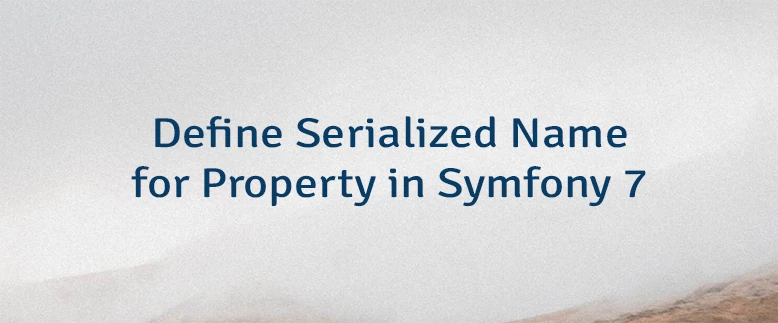Serializer component can be used for converting objects to specific format (e.g. JSON, XML) and vice versa. In some applications, we may need to use a serialized name that should be different from the property name. This tutorial provides example how to define serialized name for property in Symfony 7 application.
Symfony provides the #[SerializedName] attribute that allows to specify serialized name for specific property.
src/Entity/User.php
<?php
namespace App\Entity;
use Symfony\Component\Serializer\Annotation\SerializedName;
class User
{
#[SerializedName('phone_number')]
public string $phone;
public function getPhone(): string { return $this->phone; }
public function setPhone(string $phone): void { $this->phone = $phone; }
}In our case, phone_number serialized name is used for phone property during User object serialization.
src/Controller/TestController.php
<?php
namespace App\Controller;
use App\Entity\User;
use Symfony\Component\HttpFoundation\Response;
use Symfony\Component\Routing\Attribute\Route;
use Symfony\Component\Serializer\Encoder\JsonEncoder;
use Symfony\Component\Serializer\SerializerInterface;
class TestController
{
#[Route('/')]
public function index(SerializerInterface $serializer): Response
{
$user = new User();
$user->setPhone('16111122333');
$json = $serializer->serialize($user, JsonEncoder::FORMAT);
return new Response($json); // Output: {"phone_number":"16111122333"}
}
}



Leave a Comment
Cancel reply